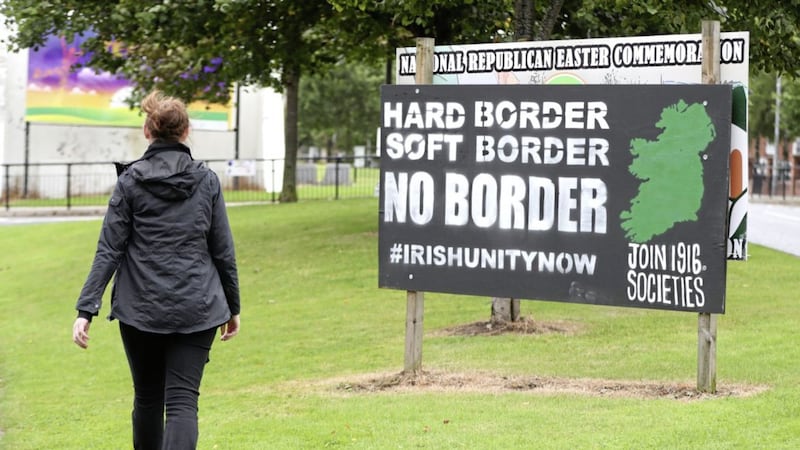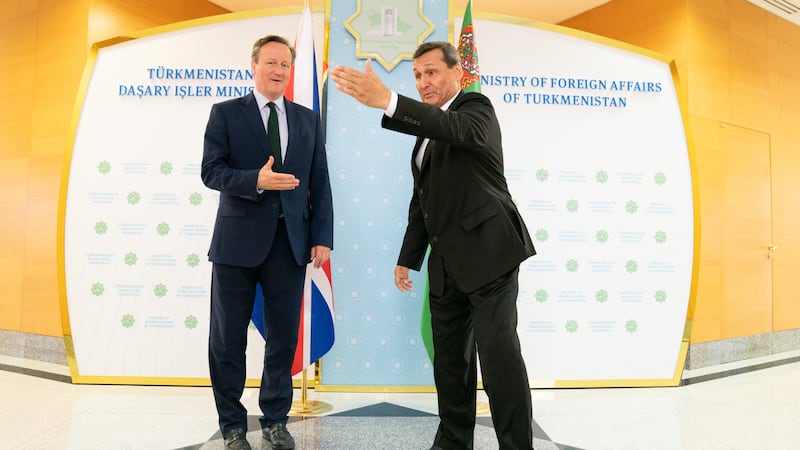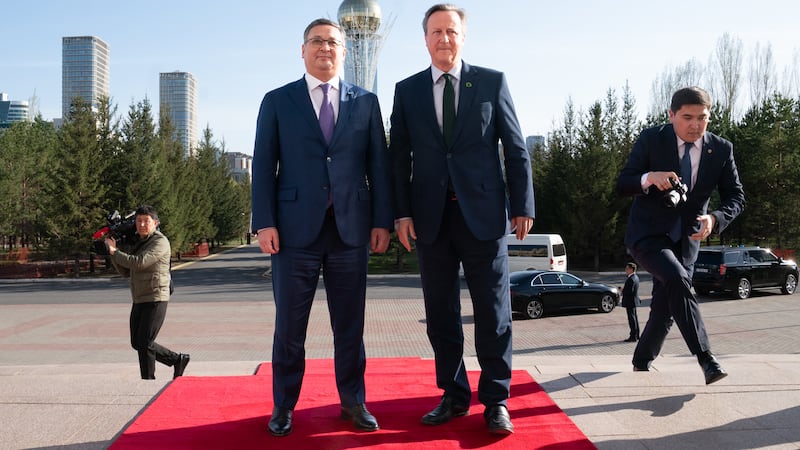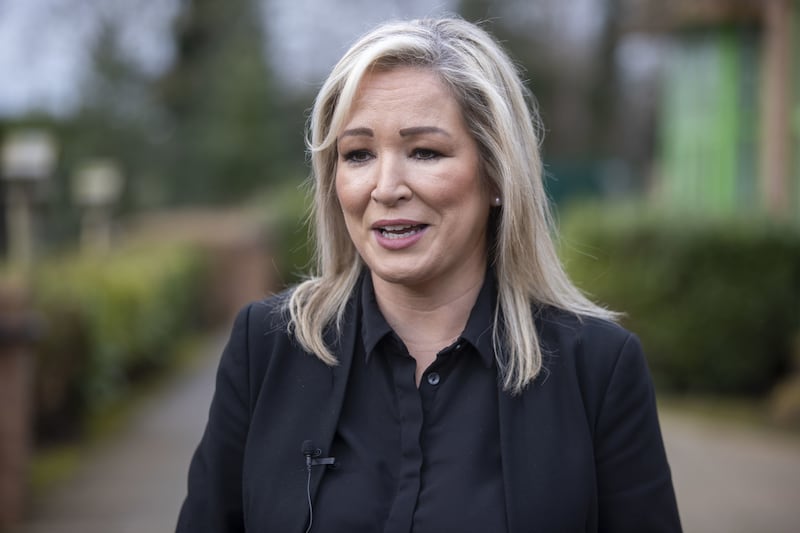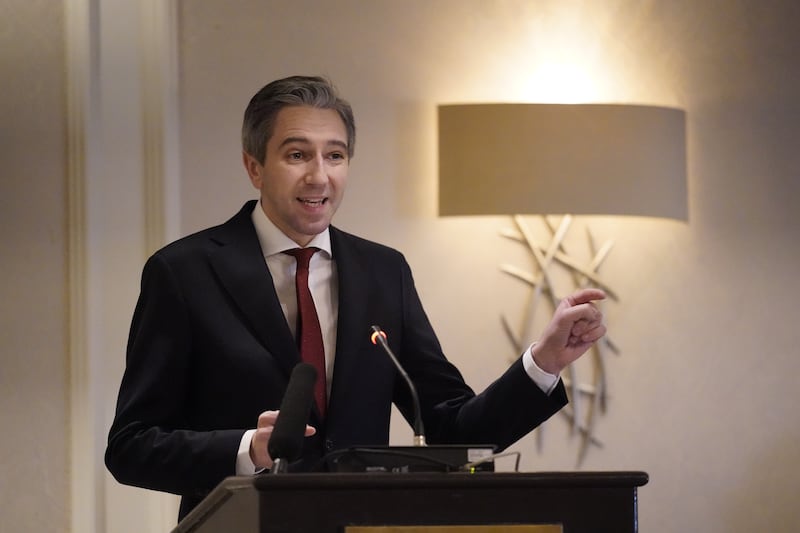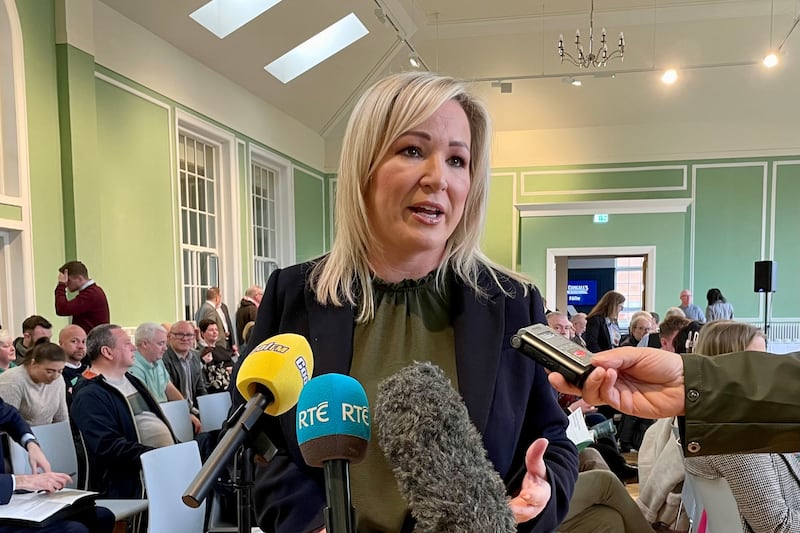NATIONALIST politicians have hit out at the British government's "conflicting" and "confused" Brexit paper on Ireland.
Sinn Féin's northern leader Michelle O'Neill said the proposals had little detail and accused the government of treating the north as "collateral damage".
"I am not comforted, I don't believe the wider public out there will be comforted from what they read today because, whilst the British Government might say they don't want to see any kind of hard border or technology put in place, it will not be within their gift to deliver that; it will be the other European member states, who clearly think and believe we need to see customs controls," she said.
Ms O'Neill claimed the British Government had only a passing concern over how Brexit would affect the north and suggested it was using Northern Ireland to gain leverage in wider negotiations with Brussels.
"What the British Government are doing is treating us as collateral damage," she said. "They are very interested in the needs of the British people but not of the needs of the people here who voted to remain within the European Union."
The Sinn Féin politician reiterated her demand for the north to have a special EU status following Brexit. And she called on the Irish government to "defend the rights" of Remain voters in the north.
SDLP leader Colum Eastwood dismissed the British government's paper as a "spin document".
"Far from recognising the need for a special dispensation to protect people in Northern Ireland, the British Government seems to want the EU to bend over backwards to accommodate their ambitions but give very little in return," he said.
He questioned how the government's opposition to a hard border and customs posts could be "reconciled with their plan to abandon the customs union".
And he accused the government of misreading Irish nationalism in relation to the Good Friday Agreement.
"It fails to recognise that a primary selling point of the agreement for our community was greater cooperation and harmonisation across this island and that the people of the island could be united under the banner of our common European identity," he said.
"There is an easier answer to the Irish border question - the British Government could give up its hard Brexit position and negotiate to remain a member of the European customs union."
However, DUP leader Arlene Foster described the paper as a "constructive step".
"It is clear the government has listened to voices in Belfast, Dublin, Brussels and London about how the United Kingdom's only EU land border could be managed after we exit the EU," she said.
"I welcome the commitment to a seamless border and movement of goods between Ireland and Northern Ireland. It is also welcome news that the government will not countenance any new border in the Irish Sea."
Her colleague, MP Sammy Wilson, added: "We are pleased that the relationship between the DUP and the Conservative Party can be seen to bear fruit in many ways, including in the EU exit negotiations".
Ulster Unionist MEP Jim Nicholson also welcomed the "innovative" proposals.
But he hit out at the Irish government, claiming its tone had "become less cooperative in recent months".
"If they are serious about minimising disruption when the UK exits the European Union, then they have a responsibility to help identify workable solutions," he said.
However, Alliance deputy leader Stephen Farry said the British government was "in denial" over the border problem.
"The government is being over-optimistic in expecting that technological and regulatory solutions can entirely avoid the need for at least some form of targeted checks on the movement of goods," he said.
He said any physical border "will have profound economy, political and security implications for both parts of Ireland".
"The only means to avoid this physical border, short of the UK opting to remain inside the European Union and the current Customs Union, is to create a formal Customs Union between the UK and EU," he said.
